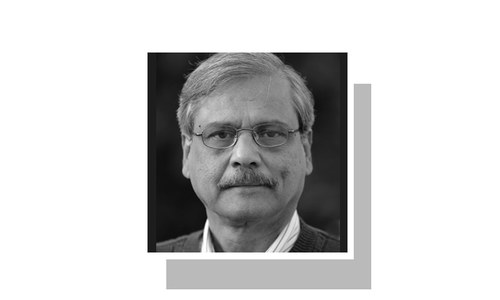WASHINGTON: Pakistani officials publicly highlighted their influence on the Afghan Taliban leadership in the US capital this week, underlining the importance of their country’s role in promoting the Afghan reconciliation process.
Yet, Adviser on Foreign Affairs Sartaj Aziz, who led a Pakistani delegation at the US-Pakistan strategic dialogue in Washington this week, surprised many by this public acknowledgment of a presence that Islamabad has been denying for years.
A transcript of his talk at the US Council on Foreign Relations, Washington, which was made available to Dawn on Thursday, confirms media reports of this acknowledgement.
However, Mr Aziz did not actually say that Pakistan had provided “a safe haven” to Afghan Taliban leaders, as reported in a section of the media.
At Tuesday’s event, it was Bob Hathaway, a Pakistan scholar at the Woodrow Wilson Centre, who raised this issue, asking Mr Aziz: “Can you give us a sense of the extent to which your government is able to encourage or even pressure various Taliban groups to negotiate in good faith, and to abide by their promises?”
Mr Hathaway also asked Mr Aziz to explain the tools or the sources of Pakistan’s influence on the Taliban. Mr Aziz began by pointing out that the Taliban, even “in the best of times,” did not listen to Pakistan always, whether it was the Bamiyan statues or many other things.
“They would listen to us when it suited them, otherwise they did not,” he said while explaining that the government in Kabul was equally powerless in this matter.
“And now, we have some influence on them because their leadership is in Pakistan, and they get some medical facilities, their families are here,” he said, marking the first time that Pakistan publicly acknowledged the presence of Afghan Taliban leaders on its soil.
“So we can use those levers to pressurise them to say: Come to the table,” he added.
But Mr Aziz warned that Pakistan could not negotiate on behalf of the Afghan government because “we can’t offer them what Afghan government can offer them”.
He explained that it was not just Pakistan which was trying to persuade the Taliban to join the reconciliation process.
“Actually, Pakistan, the US, and China are committed on the roadmap to persuade them to come together. But then it is for the Afghan Taliban and the Afghan government to negotiate whatever outcome they aim at,” he said.
Mr Aziz then turned to the second part of the question, explaining the tools Pakistan had to influence the Taliban.
“Before the 7th July (reconciliation) meeting (in Murree) last year, we had to use some of these levers and restricted their movements, restricted their access to hospital and other facilities, and threatened them that if you do not come forward and talk,” he said.
“(We) then obviously (said) we will at least expel you, or give you the chance to go wherever you want to, because we have hosted you enough for 35 years. We can’t do any more. Now the whole world is blaming us just for your presence here.”
Mr Aziz added: “So that is the kind of leverage we have to bring them to the table. But to pressurise them, to negotiate, will depend on the parties, which are actually negotiating.”
Pakistan, he said, had a limited role.
“We can advise the Afghan government, if they want our advice, on what might be acceptable and so on and so forth, but in this task I think, and according to the roadmap, all three of us have to share that advice -- US, Pakistan, and China -- so that we collectively decide what is best.”
Mr Aziz explained that the reconciliation process was still at an early stage.
“I don’t think we in the stage where actual negotiation strategy, et cetera. Right now the idea is to bring them to the table,” he said.
Mr Aziz noted that Pakistan’s positive role in the reconciliation process has been appreciated by the United States and other countries, who acknowledged that “(we) are being very sincere and very positive”.
He said the reconciliation process would only work if all parties were serious.
“If you are not serious about reconciliation, then Taliban won’t come,” he added, noting that last week Afghan President Ashraf Ghani issued an open invitation to the Taliban to come to the table.
Published in Dawn, March 4th, 2016













































